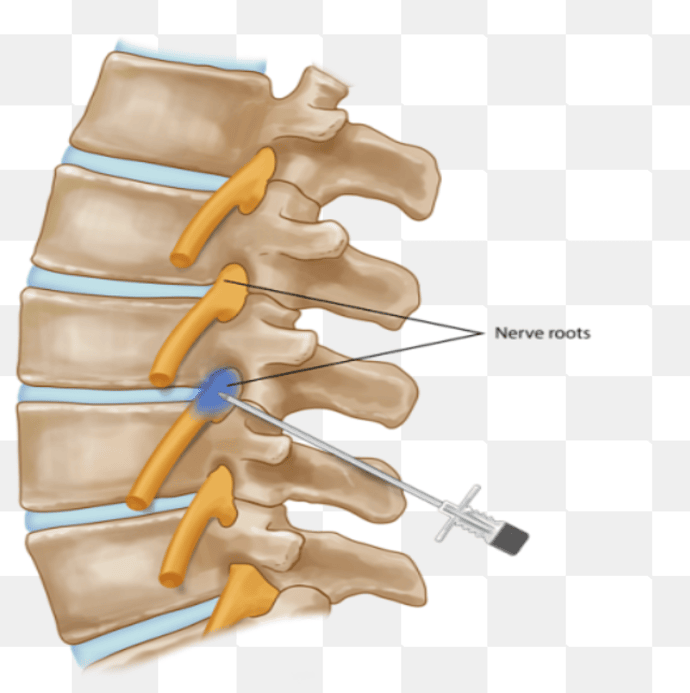
A Nerve Root Block (NRB) is a common spinal procedure used for both diagnosis and pain relief when a spinal nerve is irritated or compressed (e.g., by a slipped disc, arthritis, or spinal stenosis).
1
Diagnostic Services
- Selective Nerve Root Block (SNRB):
- Performed to identify which specific spinal nerve is causing pain.
- A small amount of anesthetic is injected near the nerve.
- If pain relief is immediate, that nerve is confirmed as the source.
2
Therapeutic Services
- Steroid & anesthetic injections:
- Used to reduce inflammation around the irritated nerve.
- Provides pain relief for conditions like sciatica, herniated discs, or nerve compression.
- Pain relief duration:
- Some patients get relief for weeks to months.
- Can be repeated as part of a pain management plan.
3
Procedure Details
- Imaging guidance: Done under X-ray (fluoroscopy) or CT scan to ensure accuracy.
- Outpatient procedure: Typically 20–30 minutes, with observation afterward.
- Local anesthesia: Mild sedation may be offered if needed.
- Same-day discharge: Patients go home the same day.
4
Aftercare & Follow-up
- Monitoring for side effects (temporary numbness, soreness at injection site).
- Follow-up appointments to assess effectiveness.
- Integration into a wider treatment plan: physiotherapy, rehabilitation, or surgical consultation if needed.